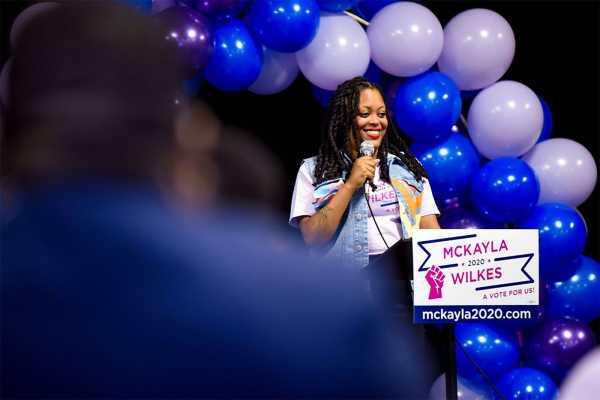
There is a growing crop of left candidates taking aim at high-profile House Democrats in typically safe seats, trying to give them a run for their money over how aggressively they are (or aren’t, as the case may be) going after President Donald Trump.
These candidates, most of them under the age of 40, are challenging Democratic Reps. Steny Hoyer (MD), Eliot Engel (NY), Jerry Nadler (NY), and Richard Neal (MA), pushing them on whether they’re doing enough from their perches as committee chairs or in leadership to hold the president accountable. The challengers are asking whether these representatives have been in Congress so long that they’re no longer as responsive to their communities as they once were.
The candidates are modeled, at least in ambitions, on Alexandria Ocasio-Cortez’s defeat of Joe Crowley.
Challenges to incumbents are notoriously hard to win, in primaries and in general elections. According to the Center for Responsive Politics, 91 percent of House of Representatives incumbents won reelection in 2018. In 2016, that was 97 percent.
But it worked for AOC. So why can’t it work for Lindsey Boylan?
Boylan, a 35-year-old former state economic development official and adviser to New York Gov. Andrew Cuomo, is challenging Nadler, who chairs the House Judiciary Committee. She says she was inspired to make her own run for Congress by the women who ran and won in 2018.
“Women are getting into the game and saying, ‘I’m not going to wait my turn, because it’s never going to be my turn,’” she said. “I don’t just want change for my daughter and myself. I want it for my mom, because she deserves better.”

Boylan has found some traction. She has raised more than $250,000 thus far, including from many donors who have donated the maximum amount of $2,800 to her primary and, if she gets there, general election campaigns. It makes sense: She is polished and well connected in New York politics. She’s a progressive and talks about the importance of addressing income inequality and climate change. However, she’s not the waitress-from-the-Bronx AOC type; she’s contributed $80,000 of her own money to her campaign and lives in the Manhattan neighborhood of Chelsea.
The day I met Boylan at a coffee shop in downtown Manhattan, she had just come from an event with voters in Brooklyn. She was being shadowed for the day by a reporter from BuzzFeed and in the evening would appear on NY1.
“No one is entitled to keep their seat,” Boylan said.
She is one of four candidates challenging Nadler, who was elected to Congress in 1992 and represents New York’s 10th District.
“He is in one of the most liberal districts in the country with a very high college-educated Democratic primary base that’s really invested in fucking with Trump,” said Sean McElwee, an activist and the co-founder of progressive group Data for Progress. “He’s the guy who’s supposed to be the Trump fucker, and he’s not fucking Trump enough.”
Some leaders in Congress seem less than eager to take Trump to task
After the 2018 “blue wave” election, there was a lot of excitement on the left about Democrats really going after the president — the subpoenas were about to fly, White House officials would be paraded before hearings, impeachment proceedings would begin at any second, the tax returns would finally be out.
Except that’s not quite what happened. The White House has stonewalled many of the Democrats’ efforts to gather information, documentation, and testimony. House Speaker Nancy Pelosi (D-CA) isn’t sprinting toward impeachment hearings. Investigations are underway out of some committees, perhaps most notably the House Oversight Committee, overseen by Rep. Elijah Cummings (D-MD), but many progressives feel that Congress isn’t doing enough and is moving too prudently on Trump.
“I just don’t understand the lack of urgency from our leaders in Washington, or on the state or city level,” said Jamaal Bowman, 43, the founder and principal of a Bronx middle school who is challenging Engel.
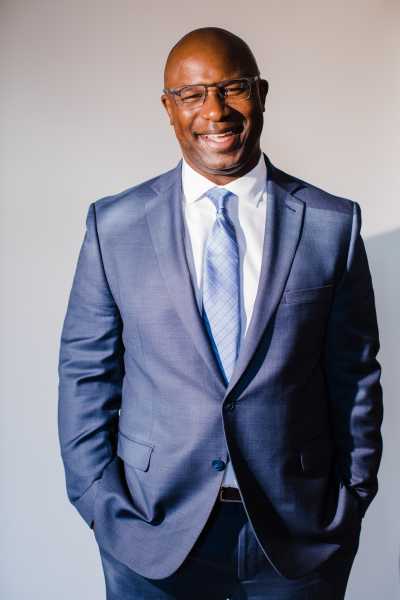
Neal, who heads the Ways and Means Committee, finally sued to try to get the president’s federal tax returns in June, but he still hasn’t requested the president’s New York taxes after the state passed a law that would let him access them. His office has argued that he’s just making sure he has the best case possible to win in court, but critics have said he appears to be slow-rolling his efforts until 2020. (One congressional aide recently told me Neal’s enthusiasm on Trump’s taxes is “probably lower than what a patient would offer to have their molars yanked without anesthesia.”)
“He’s the one person that has the authority in Washington to get Trump’s state tax returns from New York, and he’s the one person standing in the way,” said his challenger Alex Morse, who is currently serving his fourth term as mayor of Holyoke in Western Massachusetts; he became the city’s first openly gay mayor in 2011.
Both Morse and Bowman have the backing of Justice Democrats, the group that helped propel Ocasio-Cortez to victory in 2016. “We’re trying to show a different style of leadership that we haven’t seen in the Democratic Party, where you have more working-class people, more outsiders, and people willing to bring more transparency to Washington,” Waleed Shahid, a spokesman for the group, said.
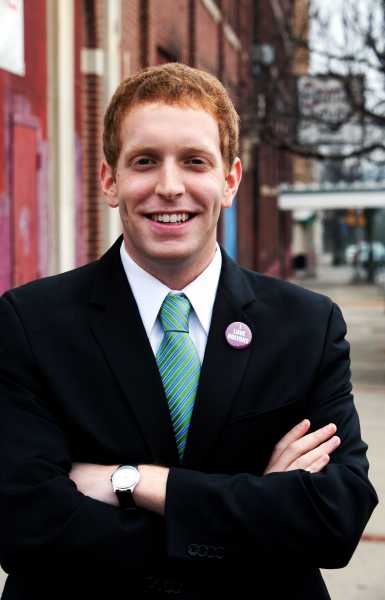
Around half of House Democrats support an impeachment inquiry into Trump, but movement has been slow, and speaker Pelosi has resisted. Hoyer, who is House majority whip, has called impeachment talks a “distraction” and “not worthwhile.” His campaign in an email said that Congress “will follow the facts wherever they lead,” including, potentially, impeachment.
This kind of talk is what’s attracting a primary challenger.
“We need someone who’s going to move and not wait for the politically correct thing to do,” said McKayla Wilkes, a 29-year-old student from Maryland, one of two women running in the primary against Hoyer.
Engel, who chairs the Foreign Affairs Committee, only came out in favor of impeachment at the end of July. Nadler, Judiciary Committee chair, has reportedly pushed Pelosi on impeachment in private, but only in an August interview on CNN said that his committee is actually already conducting an impeachment inquiry.
It’s not clear whether voter frustrations with the pace House Democrats are taking here will be enough to successfully drive challengers’ campaigns.
It’s hard to get Democratic voters out in the primary and for relative unknowns to overcome name recognition. Some primary voters may be eager for change, but other voters like having powerful people represent them in Congress. This group of progressive candidates is making a bet that there are more of the former out there.
To be sure, plenty of other members of Congress beyond Neal, Nadler, Hoyer, and Engel are getting primaried. House speaker Nancy Pelosi (D-CA), Appropriations Committee Chair Nita Lowey (D-NY), and Reps. Joyce Beatty (D-OH), Henry Cuellar (D-TX), Carolyn Maloney (D-NY), and multiple others have challengers as well.
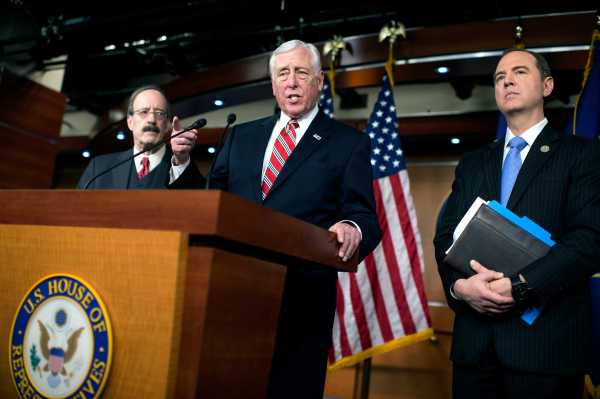
It’s about more than just going more aggressively after Trump
Many of the challengers I spoke with talked about more than holding the president accountable; they also want Democratic party leaders to refocus on issues they say matter to Americans today. They brought up more affordable housing and higher wages in their districts. They talked about the real-life impact that climate change and the criminal justice system are having in the areas they live in.
Their underlying message: The lawmakers they’re challenging have been in Congress for a long time — decades, in some cases — and their challengers feel they are out of touch.
Amanda Frankel, a 25-year-old tech professional running against Nadler, said the congressman has been a “good progressive voice,” but “when you’ve been in office for 27 years, you were originally elected for different reasons and to solve different problems,” she said.
Generally, the list of issues they checked off sounded like the 2020 Democratic presidential field: the Green New Deal, Medicare-for-all, immigration reform.
Jonathan Herzog, 24, who worked for Andrew Yang’s presidential campaign in Iowa and quit to make his own run against Nadler in New York, is running on the same universal basic income idea as his old boss. He figures if Yang wins the White House, he’ll need allies in Congress. And if Nadler were to hop on the UBI train, Herzog would happily drop out and back him instead. “If the congressman were to urgently address the issues of the fourth industrial revolution and run on the freedom dividend of himself as his first legislative priority, I’d be like, ‘Sign me up,’” he said.

Most were much more critical of their representatives’ records. Bowman in his campaign launch video hit Engel on his support for the 1994 crime bill, the Iraq War, and the No Child Left Behind Act. He pointed out that within the first 48 hours of his campaign launch, he raised more small-dollar donations than Engel in the entire last election cycle.
Morse pointed to Neal’s support for legislation that would bar the IRS from building an online tax filing system, a bill that’s supported by companies such as H&R Block and TurboTax-maker Intuit. “There’s a narrative of Congressman Neal having so much power and influence … he’s used that power and influence for corporate influence and wealthy donors,” he said.
In other words, the Democratic party has changed a lot since some of these people were first elected, and these challengers want these safe seats to represent where the party is at now.
Wilkes, who is black, is a mother of two and is currently holding down a full-time job while also finishing her bachelor’s degree and mounting a challenge to Hoyer. She said she had always thought she would have to finish college, then go to law school, and then do policy work before running for office. But the 2018 race changed that. She doesn’t have to wait to be “the dictionary definition of a politician to run for Congress.”
“In 2018, after seeing the election results and looking at the representatives who were newly elected across the country, I thought to myself, ‘It would be really nice if I had representation that looked like me, that sounded like me, that is talking about the things that I care about,” says Briana Urbina, a 34-year-old community organizer also running against Hoyer who describes herself as “Afro-Latina” and who is part of the LGBTQ community.
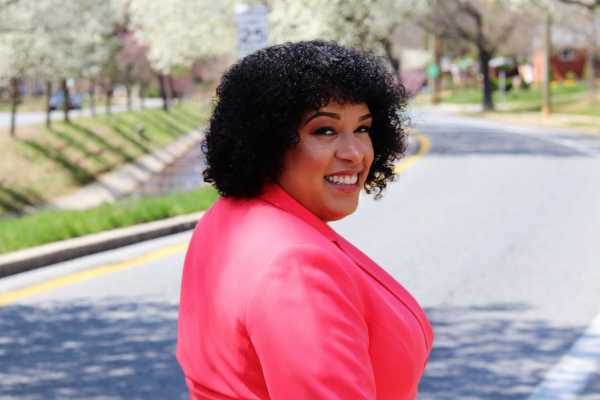
These candidates appear to have gotten some lawmakers’ attention
Nadler’s camp is largely shrugging off his four challengers and defending his record. “Congressman Nadler is widely known as a passionate and effective leader who is focused on producing real results for his constituents and the nation,” said Robert Gottheim, an aide to Nadler, pointing to his work on the 9/11 victim compensation fund bill, advocacy on reproductive rights, opposition to the Iraq war, and support of the Iran deal as part of his “long record of progressive accomplishments.”
Hoyer’s campaign similarly defended his work, and spokeswoman Annaliese Davis said that his seniority, experience, and relationships in Maryland “make him uniquely able to serve his constituents.” During this recess, Hoyer held a “telephone town hall” with about 3,000 constituents, and he plans another in September.
Representatives for Neal and Engel did not respond to requests for comment.
Even if the primary challengers fail to oust the lawmakers they’re taking on, they might shift the long-time representatives’ politics, getting them to pay a little more attention to their districts and making them be a little quicker on their feet.
These races are also giving up-and-comers a way to gain experience in a campaign and make a name for themselves, potentially for another go further down the line. And it’s showing that the post-Trump wave of progressives running for office continues, now with a post-AOC bump.
“AOC is sort of the Christopher Columbus of primaries, with less genocide,” McElwee said.
Sourse: vox.com






